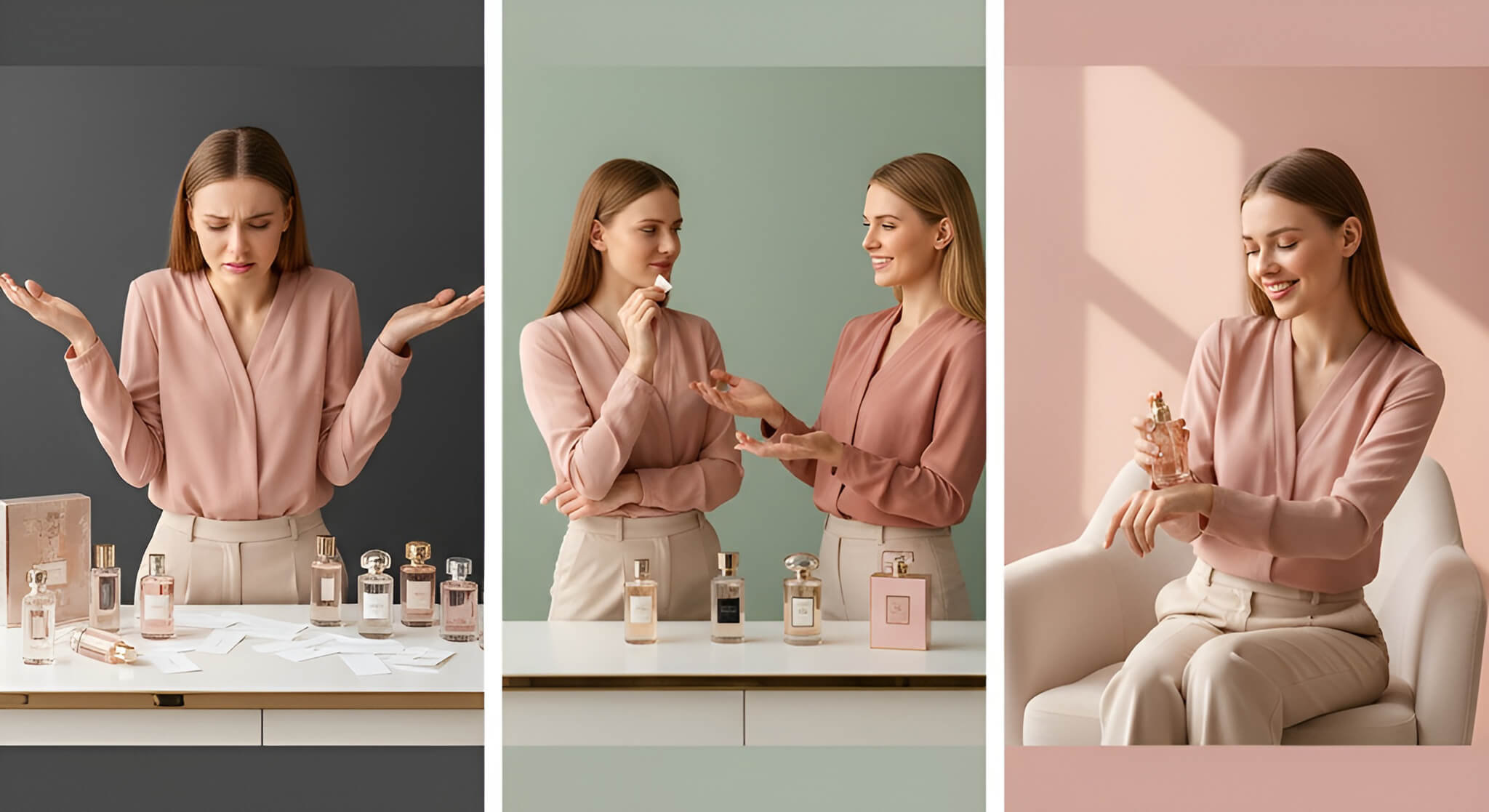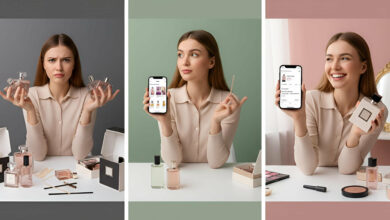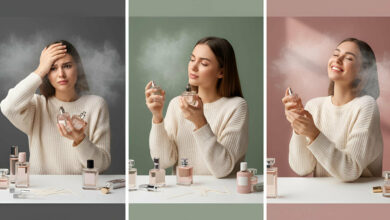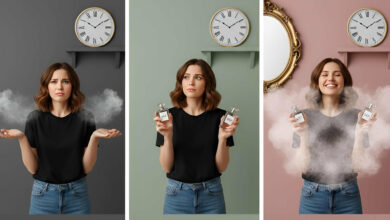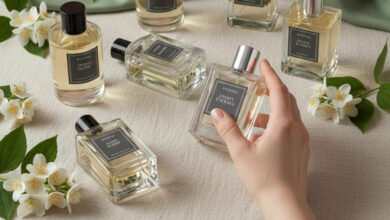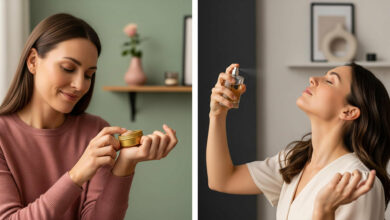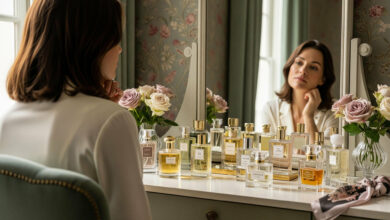Does a Consultation With a Fragrance Specialist in-Store Really Help Your Choice
Table of contents
- Navigating the Overwhelming (But Beautiful) Wall of Scent
- The “PROS”: Why an Expert Guide is a Game-Changer
- The “CONS”: Potential Pitfalls and How to Avoid Them
- The Ultimate Strategy: How to “Lead” Your Consultation for Success
- The At-a-Glance Comparison Table
- The Verdict: An Invaluable (and Free) Resource
Navigating the Overwhelming (But Beautiful) Wall of Scent
You step into the fragrance hall of a department store. It’s a dazzling but daunting library of scent, with hundreds of beautiful bottles, dozens of brands, and a team of eager sales associates. It’s incredibly easy to get lost, suffer from instant ‘nose fatigue,’ and either walk out empty-handed or with a hastily chosen perfume you later regret.
In this environment, one of the most powerful and underutilized tools at your disposal is the fragrance specialist themselves. Yet, many of us are hesitant to engage, fearing a pushy sales pitch or feeling intimidated by their expertise.
So, is taking the time for a proper consultation actually helpful, or is it just a sales trap?
The answer: a consultation can be the single most effective and efficient tool in your search, if you know how to lead the conversation. We’re breaking down the pros, the cons, and the exact script to use to turn a salesperson into your personal scent sommelier.
The “PROS”: Why an Expert Guide is a Game-Changer
When leveraged correctly, a specialist’s knowledge is invaluable.
They Know the “Map” of the Store
A good specialist knows their inventory inside and out. Instead of you aimlessly sniffing 20 bottles, you can describe a single note (like vanilla), a feeling (like “a walk on the beach”), or a perfume you used to love, and they can immediately pull 3-4 targeted options, saving you immense time and sensory overload.
They Are a Gateway to Discovery
We often stick to the big, familiar brands we see advertised. A specialist can listen to your tastes and say, “If you love that popular fragrance, you should really try this one from a smaller niche brand you might not have seen.” They are your gateway to discovering hidden gems.
They Have Insider Knowledge on Performance
A specialist has a wealth of real-world feedback. They know which fragrances have poor makeup longevity (scent longevity), which ones have a surprising dry-down that smells different after an hour, and which ones consistently get the most compliments. This is invaluable information you can’t get from a paper blotter.
The “CONS”: Potential Pitfalls and How to Avoid Them
Being aware of the potential downsides is key to navigating them.
The Sales Pitch
The most obvious risk is that an associate is motivated by sales goals or a commission from a specific brand they are representing that day. They might push a brand’s newest launch over what is truly the best fit for you.
The “Brand Story” Overload
Some associates are trained to recite romantic marketing stories about a perfume (“This was inspired by a love affair in a rose garden…”), which, while lovely, doesn’t actually tell you if you’ll enjoy the scent on your skin.
The Ultimate Strategy: How to “Lead” Your Consultation for Success
The secret to a successful consultation is to arrive prepared and be the one in charge.
Step 1: Do 5 Minutes of “Homework”
Before you go, identify one or two perfumes you already love and one you dislike. If you can, look up their main notes online (a quick search for “fragrance notes in [perfume name]”). This gives the specialist a crystal-clear roadmap of your taste.
Step 2: Use the “Magic Script”
Don’t just say, “I’m looking for something new.” Take control with a specific and polite script: “Hi, I’m looking to discover a new fragrance. I typically love scents with notes of [e.g., vanilla and sandalwood], like [example perfume you love]. I’m not a huge fan of [e.g., very strong white florals]. Could you show me two or three things you think I might love based on that?”
Step 3: Control the Testing Process
Ask to spray on paper blotters first to make an initial judgment. Once you have a top two, ask to spray each on a different wrist. This allows you to test on your skin chemistry.
Step 4: Politely Ask for a Sample to Go
This is the final, crucial step to prevent a costly mistake. After you’ve identified your favorite on skin, say: “This is beautiful, thank you so much for your help. I’d love to see how this develops over a few hours before I commit. Would it be possible to get a small sample to take with me?”
The At-a-Glance Comparison Table
| Feature | Shopping Solo | With a Guided Consultation |
| Efficiency | Slow & Overwhelming | Fast & Curated |
| Discovery | Limited to what you see first | Can uncover hidden gems |
| Information | Limited to packaging | Expert insights on notes & longevity |
| Risk of a Bad Purchase | High | Low (when you lead the process) |
| Cost | Free (but high risk of a mistake) | Free (with low risk) |
The Verdict: An Invaluable (and Free) Resource
So, does a consultation with a fragrance specialist really help? When you arrive prepared and lead the process with confidence, the answer is an overwhelming yes.
A fragrance specialist is not just a salesperson; they are a free, expert resource waiting to be utilized. By taking control of the conversation, you can transform a potentially stressful and expensive guessing game—a major source of anxiety for many shoppers—into an efficient, educational, and joyful discovery process. It’s the smartest way to find a signature scent you’ll truly love.
